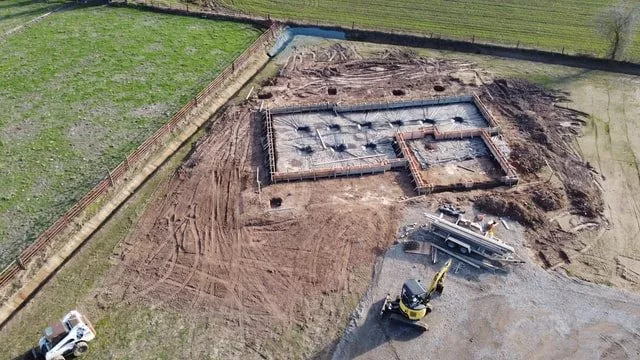
Screw Piles: A Smarter, Sustainable Foundation Solution for Commercial Projects
In today’s construction landscape, speed, sustainability, and structural certainty are non-negotiable — especially across commercial and infrastructure projects. Screw piles, a modern alternative to traditional concrete footings, are rapidly becoming a preferred foundation method for developers, engineers, and contractors across the UK.
In this guide, we’ll cover what screw piles are, their commercial applications, why they’re aligned with UK sustainability goals, and what you can expect in terms of cost — so you can make an informed and future-ready decision.
What Are Screw Piles?
Screw piles are high-strength steel foundation systems designed to be mechanically screwed into the ground. Unlike traditional poured concrete, they offer immediate load-bearing capacity and require no setting time. The helical design allows for precise installation, even in restricted-access sites — a common constraint on urban UK developments.
While often associated with lighter structures, today’s screw pile technologies can confidently support residential blocks, modular units, commercial warehouses, and even transport infrastructure.
Crucially, they offer lower ground disturbance and a cleaner installation process, reducing site mess and post-installation remediation — a key advantage for occupied commercial premises or environmentally sensitive zones.
Where Are Screw Piles Used?
Screw piles are now a go-to solution for B2B projects requiring efficiency, sustainability, and flexibility. They’re commonly specified in:
- Housing developments (including MMC and modular housing)
- Commercial and retail units
- Infrastructure works (such as signage, bridges, walkways)
- Temporary structures (event stages, site cabins)
- Solar farms and EV infrastructure foundations
Moreover, with the UK Government’s push toward low-carbon construction methods and the RIBA 2030 Climate Challenge, screw piles are being recognised for their significantly lower embodied carbon compared to concrete.
Why Choose Screw Piles Over Concrete?
As ESG requirements become standard across public and private tenders, more developers are turning to screw piles to help reduce:
- Carbon output: up to 70% lower than concrete foundations
- Installation time: faster setup with minimal curing delays
- Risk: predictable performance across various soil types
- Disruption: ideal for tight schedules and noise-sensitive sites
Furthermore, the reduced excavation and material use make screw piles a cost-efficient and environmentally responsible choice.
What Do Screw Piles Cost?
Pricing depends on load requirements, pile depth, and site conditions. However, on average, supply and install costs begin around £1,200 per pile for typical commercial use.
When factoring in faster installation times, reduced labour, and fewer project delays, many of our clients find that screw piles offer better long-term value than traditional foundations.
Ready to Future-Proof Your Next Project?
Whether you’re planning a commercial build, infrastructure upgrade, or modular installation, now is the time to consider screw piles as a foundation standard.
Contact our structural experts today to discuss technical specifications, carbon savings, and tailored installation packages for your site. Let’s build better — faster, cleaner, and smarter.